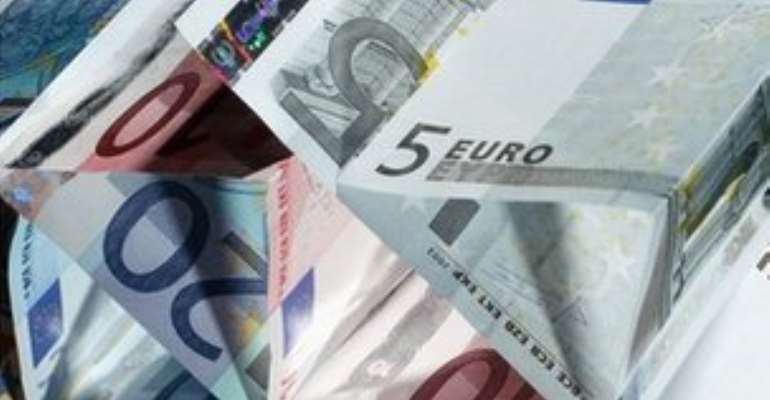SPAIN’S BORROWING COSTS HIT 14-YEAR HIGH

Spain's borrowing costs have risen over the last few days
Spain's borrowing costs have risen at its latest bond auction, as Spaniards prepare to vote for a new government to tackle its financial crisis.
On money borrowed today, payable in 10 years, Spain has to pay an interest rate of 6.975%, the highest since 1997.
A high rate or yield indicates investors may not have confidence in a government to fully repay its debts.
The figure is perilously close to 7% – the level at which other eurozone countries have had to seek bailouts.
The average yield on 10-year Spanish government bonds soared from 5.433% in October.
Italian 10-year bond yields passed 7% earlier this month.
Opinion polls indicate that the opposition Popular Party will win Spain's general election on Sunday, ending seven years of Socialist government.
'Dreadful' result
The Spanish government sold 3.56bn euros (£3.04bn; $4.79bn) worth of bonds out of a maximum target of 4bn euros.
The auction attracted bids worth 1.5 times the securities offered. The so-called bid-to-cover ratio was down from 1.8 in October.
Even if the Spanish exchequer expropriated and sold superstar footballers such as Fabegras, Villa and Iniesta, there would be only the tiniest dent in its debt mountain'
Robert Peston
Business editor, BBC News
Euro 2012 and the eurozone crisis 2011
“The result was dreadful. They didn't manage to raise the full amount and the bid-to-cover is really poor,” said Achilleas Georgolopoulos, rates strategist at Lloyds in London.
“The fiscal profiles of Spain and Italy are different but their yields seem to be aligning now.”
A similar auction in France saw French short-term borrowing costs – for its two and four-year bonds – also rise by about half a percentage point.
The government raised 6.98bn euros through the sale, but the interest rate on its four-year bond jumped to 2.82% from 2.31% in October.
The spread between French and German 10-year bond yields widened to more than two percentage points – the widest since the euro was created in 1999 – amid fears that France will be the next eurozone country to face a debt crisis.
European share markets were lower after the auctions, with leading share indexes in London, Paris and Frankfurt all down almost 2%.
Shares in the banking sector saw big falls, with Lloyds Banking Group down 5.6%, while Barclays, Credit Agricole and Commerzbank all shed about 4%.
ECB role
France, whose AAA credit rating has come under threat, has called for the European Central Bank (ECB) to take stronger action.
Many analysts believe the ECB should buy up large quantities of bonds to try to stem contagion in the eurozone.
But Germany has resisted this move, opposing any suggestions for the ECB to become the “lender of last resort”, fearing it may lead to rising inflation.
German Chancellor Angela Merkel reinforced that stance on Thursday. “If politicians think the ECB can solve the euro crisis, then they are mistaken,” she said.
Marc Ostwald, analyst at Monument Securities, said the eurozone had to deliver something that was going to calm the markets.
“At the moment, markets feel like they are being given no comfort whatsoever,” he said.
In Italy, new Prime Minister Mario Monti will outline austerity measures later aimed at restoring confidence in the country's economy.
He will present his plans to the Italian senate ahead of a confidence vote in the upper house.
Meanwhile, a report by the European Commission's taskforce in Greece said that the country had 60bn euros in unpaid taxes – equivalent to 25% of the country's gross domestic product – because of tax avoidance and lack of compliance.
